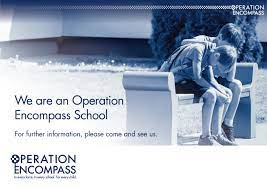Mowden Alumni - Memories of Mowden Hall School 1957 – 1962
.jpg)
I started as a boarder at Mowden in 1957 when I was 7 - one of about 10 small 7 and 8-year-old boys. My parents drove me by car to the school and delivered me to the front entrance in my uniform with one large trunk and a tuck box. We were met by Mr Marchbank and his wife and then shown up to the small dormitory that I was to share with two other new boys. I can recall being very homesick as this was my first night away from home. On our first night, we sang hymns to try to forget our sadness and in order not to cry.
After that, at the beginning of every term, we caught the train from Darlington to Newcastle and then travelled on the branch line to Stocksfield station where we were picked up by a bus for the final leg of the journey to Mowden.

Several boys came from the Darlington area - Little, Watson, Paton and Kent, I remember. Most came from Northumberland – many were the sons of local farmers – I recall names like Bell, Sutherland, Moralee, Cruddas, Berryman and Telford. Other names were Bicknell, Bright, Charlton, Crisp, Gee, Haslam, Lawlan, Nuttall, Pattinson, Robinson, Rutherford, Sarson, Smart, Smythe, Simmers, Staveley and Thorburn. A few came from further afield, some from Scotland and others from the South. There were four Robinsons at Mowden when I arrived – to differentiate between them - they were known as Robinson Ma, Mi, Min and 4.
The school had been moved from Darlington in 1947 under the guidance of the headteacher Mr Frank Marchbank. In 1957, when I started, the school numbered about 80 boys aged 7 – 13. I believe I had a happy time at Mowden; I made some close friends, enjoyed the games and the independence of outdoor life, and was well-educated.
Mr Marchbank had recruited an impressive team of male teachers - Major Len Coulson taught Maths. He had served in the Durham Light Infantry and Commandos during the war and had been awarded the Military Cross for bravery during the invasion of France in 1944. Captain Laurie Cook – taught Latin. He was an Oxford Blue and had run the mile for Oxford. During the war, he had been a Captain in the tank regiment. Mr Cooke was single and spent a lot of his free time in the Duke of Wellington, a pub in the nearby village of Newton. Dennis Sullivan, who taught French, was married with a young family and had played rugby as a fly half for Gosforth Park. Mr Dakin taught English and was one of the youngest members of the teaching staff. He had played first-class cricket and took over as head during my time there. They were all inspirational teachers and strong characters with interesting backgrounds. Their teaching styles were formal but very successful in the way they were able to prepare boys for the Common Entrance. Several boys would go on to secure scholarships to their chosen public schools.

http://www.commandoveterans.org/LeonardCoulson4Commando
The school boasted some formidable women too, not least Miss Nightingale – a distant relation of Florence Nightingale. She headed up a team of popular matrons who wore white nurses’ uniforms - Miss Kennedy, Miss Baker, and Bob Dakin’s wife. They administered a daily dose of cod liver oil to every boy, enforced tidiness in the dormitories and checked that the lights went out on time. Cleanliness was another priority. After rugby or cricket, they made sure that hands and knees were clean, teeth were cleaned morning and evening and that one bath a week was taken. There was also a sick bay for boys with the flu or measles. Sadly, there were very few female teachers, - I can only recall, Mrs Coulson who, along with her husband, taught music and singing and an Art teacher - Miss Carol who ran the cubs.
Thomas Pigg was the general caretaker and odd-job man. He was on duty night and day as there was plenty for him to do. The central heating often broke down and the plumbing was inadequate. I believe it was he who discovered, in the old stables, the original rowing boat that Grace Darling had used to rescue the survivors of the crew of the Forfarshire, wrecked on the rocks off the Farne Islands in 1838.
Outside of lessons, boys wore green boiler suits and wellington boots. Games (Rugby, Cricket, Athletics) were played in the afternoons and on Saturdays. We also engaged in a boxing competition and a long-distance run known as the ‘Stelling Run.’ After tea and in the afternoons and weekends we were left to roam free in the extensive grounds, woods, and lake. A bell was rung to send us out and call us in – it seemed like total freedom. We operated rather like young ‘savages’ in small groups or gangs and busied ourselves with den building, climbing trees, digging bear pits, birds nesting and fishing in the lake.
We were occasionally given a weekend off when our parents could visit and take us out for the day on a Sunday. The George at Chollerford (See picture below on the Tyne at Chollerford) was a popular place for lunch - Newcastle, and Hadrian’s Wall for visits. There were inevitable feelings of homesickness when we returned to school in the evening. On Sundays, we attended church at St James’s in Newton. I recall special church services at Harvest Time and Christmas when parents were invited.

When the weather was bad, we were confined to classrooms and occupied our time in model making, marbles, dart throwing, ink fights, listening to pop or jazz music on a 78-rpm gramophone (Lonnie Donegan and Fats Waller), playing cards and drawing. I think we had ‘prep’ every evening to reinforce the learning we had done during the day and prepare for tests the next day. There were various formal clubs too, including model making, gardening, art, astronomy, music appreciation, woodcraft, and the cubs. Guest speakers were invited occasionally, and we had a few ‘days out’ to places like the new ‘Golden Wonder’ crisp factory. Major Coulson, who was a talented piano player, held weekly sessions of English Country Folk singing for the school. Sometimes a 35mm projector was hired so that we could watch a film show – I recall, ‘Carve Her Name with Pride’ and ‘Oh Mr Porter.’ We were also allowed to watch a BBC series called ‘The World at War’ on black and white TV. We were very interested because most of our fathers and teachers had served during the war. Toward the end of my time at Mowden, a school camp was organised in the holidays at Rothbury on the River Coquet.
There was also an enforced weekly session of letter writing to parents. This was carefully supervised by one of the teachers and suggested newsfeeds were given to us to input into our letters. We looked forward to receiving our parents’ replies. Sadly, not all the boys received letters from their parents. This was the only contact we had with home – no emails or phone calls in those days.
Easily the most popular part of school life was ‘Tuck Time’ on a Saturday and Wednesday evening when we were allowed to open our tuck boxes and take out our weekly ration of sweets.
Sport was an important part of school life - everyone took part – rugby in the winter and cricket in the summer. There was a gym in the stable block to which regular sessions were timetabled every week. Everyone had to do a 20-minute exercise session outdoors in the stable yard each morning. I think we also had an outdoor swimming pool and an athletics track. Cricket matches were played on the Newton Cricket Club pitch where we used their pavilion. There were nets near the school on the lawn. Rugby was played on a separate field closer to the school – it always seemed muddy and cold.
The worst defeat we had was in cricket when the Newcastle Preparatory School bowled us out for 13 – our top score was three! We often played in muddy kit over the winter and spent a lot of time polishing our black leather rugby boots and bleaching laces in the boiler/locker room – this was the warmest room in the school. In summer we whitened our canvas cricket boots and pads there. Appearance was important even though the results did not match.
One summer we had a professional cricket coach – Mr Coverdale (See below) - attached to the school who had played for Northamptonshire. He did help improve our skills and that year we won more games than we lost. One of my contemporaries, Smythe, went on to play for Cambridge and gained a Cricket Blue.
Net Practice on the Lawn.

Rugby in the Snow v Ascham House 1961
(Dennis Sullivan the Referee)

Sports day with Mr Cooke and Mr Sullivan doing the timing 1960.

Cricket on the Newton Cricket Club Playing Field 1962

Swimming in the Outdoor Swimming Pool 1960

Those were my memories of Mowden - almost seventy years on. Mostly happy days, I think.
Michael King (DOB April 1949) - February 2023.









